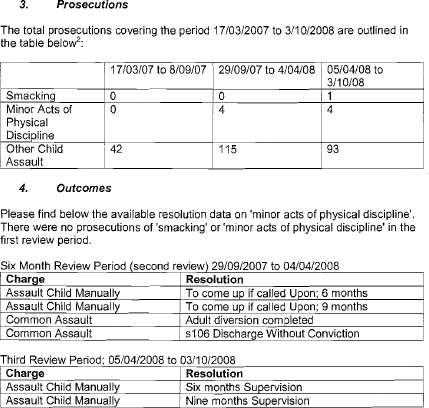De-bunking Family First’s analysis of how the law is working
June 19, 2009
Family First are determined to prove that investigations and prosecutions in cases where there are suspicions of assaults on children are unwarranted and that good parents are being prosecuted because of the child discipline law. Unfortunately the information they give about the cases is not enough to make a judgement about whether or not action was warranted. Neither Police nor CYF will release information on cases. Media reports and court proceedings sometimes provide information but in reality few cases are getting to court. What Family First provide seem to be stories as told by people who are being investigated for ill-treatment of their children and not verified by independent assessment.
In the referendum question that Family First regards as valid the standard set for acceptable assault seems to be a “smack”. This definition does not address questions such as how hard, whether an implement was involved, on what part of the body, at what age, how often and administered by whom? These could all be relevant questions when considering whether a “smack” might compromise a child’s safety and sense of security.
Both the Police and CYF are required to investigate reports of alleged harm to a child and so they should. Any such reports could mean that the child is at risk. Whether there is further action after an investigation requires careful consideration of the facts. These facts could include type of force used, degree of force used, part of body affected, presence or otherwise of injury, age of child, circumstances of the harm inflicted, family history of violence and attitude of the adult(s) involved.
The Police data Family First claim to have obtained under OIA, most of which had already been published, unfortunately gives no detail about the kind of assaults involved. In the past Family First have defended the behaviour of parents whose actions have subsequently been found to be quite abusive. It is reasonable to assume that “smacking” and minor acts of physical discipline, refer to cases where section 59 might have been used as a defence (successfully or unsuccessfully) before law change. Even if there is a valid concern that it might have been obvious to the Police that these cases were low enough on the scale of violence not to warrant investigation nine cases is not a huge number – nothing like the flood of good parents being prosecuted we were warned by Family First to expect.
The third category used in police data is “other child assault”. This refers to more and heavy handed assaults and complex circumstances that no one could find reasonable or acceptable and are likely to have been prosecuted under the old law.
The sensible and compassionate sentences (called weak resolutions by Family First) imposed in the cases that have gone through court and been found guilty do not indicate that the judge took the matter lightly. It is more likely that judges have understanding of the need to set standards in law at the same time as avoiding unnecessary hardship on families.
In examining the details of the cases where investigations are reported to have taken place we must keep in mind the natural tendency of people accused to minimise their own wrongdoing and present their own side of the story. As previously stated verification of the stories is not provided and in any case on the face of it much of the adult behaviour reported seemed to indicate a problem existed.
The only real conclusions we can draw from the material provided by Family First is that there is interest in the community in reporting apparent ill-treatment of children which is a good thing, and that appropriate investigations are taking place.
- Family First’s police report:

Tags: child safety, cyf, family first, OIA, police, referendum, smacking











